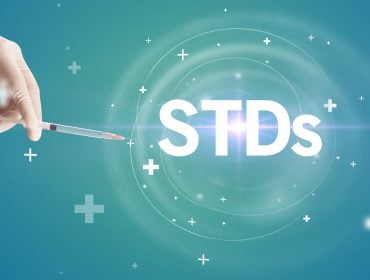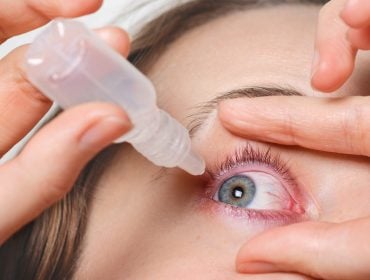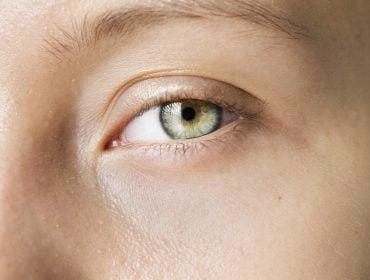My Partner Gave Me Herpes – Did They Cheat?
We see questions like, “My husband/wife gave me herpes. Did he/she cheat?” or “How did I get herpes in a monogamous relationship?” all the time. It has been such a frequently and consistently asked question that we decided to dive into it in a blog post.
The quickest answer to whether or not your partner cheated on you and gave you herpes is – Maybe, but probably not. We’ll explain below, but first you need to understand what herpes is.
What is herpes?
Herpes is virus with multiple strains; two of these strains, HSV-1 and HSV-2, cause both oral and genital herpes. Herpes viruses infect the skin and/or mucous membranes.
- Oral Herpes
Oral herpes presents itself as cold sores or fever blisters that affect the lips or area near the mouth. Oral herpes is most often caused by the HSV-1 strain, but oral herpes can also be caused by the HSV-2 strain. Approximately 80 percent of oral herpes cases are caused by HSV-1, while the remaining 20 percent are caused by HSV-2, and 75%-80% of Americans carry at least one Herpes Simplex Virus (Type 1 or 2). - Genital Herpes
Genital herpes is an STD contracted from either the HSV-1 or HSV-2 virus. Genital herpes cases are predominantly caused by the HSV-2 virus, but HSV-1 cases are growing steadily due to oral sex. Genital herpes presents itself as sores or lesions on the genitals, anus or upper thighs, although it is not unusual to be symptomless. To date, there are no statistics regarding how many Americans have genital herpes, only statistics on how many have HSV-2. This is because the blood tests that detect HSV-1 and HSV-2 are not able to tell you where on the body the virus is residing (orally or genitally). The Centers for Disease Control and Prevention (CDC) estimates that 776,000 people in the U.S. are infected annually with HSV-2, but they are not certain how many of these cases are oral herpes or genital herpes.
So did they cheat on you?
There are many nonsexual ways you can contract oral herpes (whether it is caused by HSV-1 or HSV-2). You can get oral herpes from a kiss on the cheek, a kiss on the lips, or sharing a drink/straw/or eating utensil with someone who has oral herpes. In fact, many people who have oral herpes contracted it as a child. Typically they don’t experience an outbreak at all or never notice it if they do. Often they got it from a family member who kissed their chubby little cheeks or from the normal sharing habits that come with being a kid.
Secure and Confidential
STD testing services
The fastest results possbile - available in 1 to 2 days
Because many people get oral herpes in their lifetime (remember, the CDC estimates that 75-80% of the US population has it), it is not uncommon at all for people to find out for the first time as adults that they have it after getting an STD test done. It is very possible that your significant other passed oral herpes along to you in a similarly innocent act. It is also very possible that, if this is the first time you have had a test done for HSV-1 and HSV-2, you have had it since you were a child too (considering only 20-25% of Americans do not have oral herpes).
After initially contracting herpes, the virus lies dormant for many years. Sometimes individuals who have the virus never experience an outbreak at all. They may never realize they carry HSV-1 or HSV-2, or both viruses. So if you are newly diagnosed with herpes because you are having or recently had an outbreak, you may also have had this virus for years and were simply unaware. Those who have herpes do not need to have an active outbreak to pass it on to you. Herpes infects cells, and sometimes those cells are shed (like all skin cells overtime). During shedding, an infected cell could be passed to you in an innocent kiss or some other menial way, and could potentially infect you.
Other ways you can get herpes:
You can, of course, also get herpes from sexual skin-on-skin contact, oral sex, intercourse or even anal sex if your partner has it. Condoms during sex or dental dams during oral sex may not prevent all cases of herpes. This is because condoms and dental dams do not fully cover the genital area. This means that during oral sex, you can get oral herpes from someone who has genital herpes, and vice versa. Read more about how that happens here.
Final answer:
So there is no way for us to know if your partner cheated, but there are definitely other possible explanations for how you may have contracted an STD or herpes from your significant other. Many cases of STDs (nearly 80%) are asymptomatic. This is why it is so important to get tested before and after new partners. It is also important to get tested for both HSV-1 and HSV-2, since you never know which virus you may have that may be causing symptoms. Even though approximately 80% of oral herpes cases are caused by HSV-1, that still means 1 in 5 cases is caused by HSV-2. So if you only get tested for HSV-1 because you are experiencing a cold sore or because your partner said they have oral herpes, you could have HSV-2 instead (or both!). This means that if you only get tested for HSV-1 instead of both herpes viruses, and your result is negative, you still may very well have HSV-2, but you don’t know since you didn’t get tested.
Medically Reviewed by William Terranova, MD on January 9, 2024
Secure and Confidential
STD testing services
The fastest results possbile - available in 1 to 2 days

Tagged
Categorized As
Author: Nick Corlis
Nick Corlis is a writer, marketer, and designer. He graduated from Texas State University in San Marcos, Texas, with a degree in Digital Communications. Nick is proud to be able to help eliminate the stigma of STD testing through his writing and is always trying to advocate the importance of your sexual health. Before STDcheck, his favorite way to develop his writing skills was by accepting various writing jobs in college and maintaining multiple blogs. Nick wears many hats here at STDcheck, but specifically enjoys writing accurate, well-researched content that is not only informative and relatable but sometimes also contains memes. When not writing, Nick likes to race cars and go-karts, eat Japanese food, and play games on his computer.




